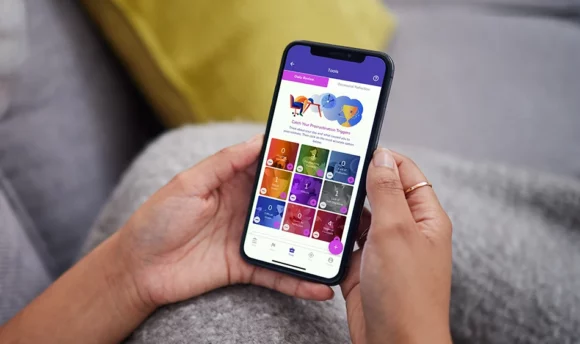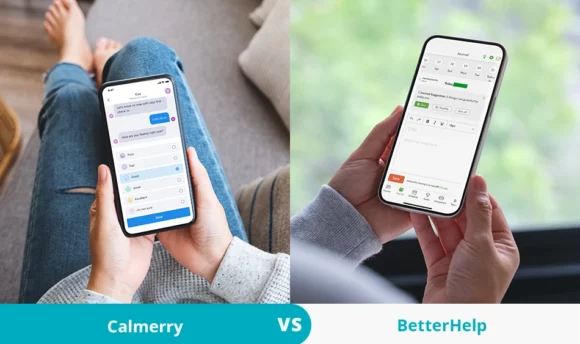Caffeine and ADHD: Analyzing the Effects
As people with ADHD have trouble concentrating, you might wonder if the effects of caffeine will aid in its treatment.

Caffeine is among the world’s best-loved drugs. Some of us struggle to go a day without a caffeinated drink, whether it’s that precious cup of coffee in the morning or black tea in the afternoon. It can wake you up, boost focus, enhance concentration, and give you a dose of energy when you need it most.
Nonetheless, caffeine consumption does have some unpleasant side effects. It can make you feel anxious, fidgety, shaky, and irritable. So, how do the pros and cons of caffeine mix with ADHD?
Stimulant medication is the most popular treatment for people with attention deficit hyperactivity disorder, also known as ADHD. As caffeine is a natural stimulant, it seems plausible to wonder if consuming caffeine will help with its symptoms.
Caffeine and ADHD: Understanding the Interaction
The relationship between caffeine and attention deficit hyperactivity disorder (ADHD) is complex. Some people can benefit from using caffeine as it imitates several effects that ADHD medications provide. Others find it increases anxiety and other negative symptoms.
Methylphenidate is one of the most popular meds, which works by increasing brain activity, primarily in places that control attention and behavior. Besides medication, there are also over-the-counter supplements like nootropics that help treat ADHD symptoms by improving brain function.
Similarly, caffeine increases activity in the brain and central nervous system, providing cognitive perks like boosting alertness and concentration. Coffee consumption, in particular, is associated with improved cognitive function and provides a mental lift.
Caffeine can even uplift your mood and support mental health by reducing depression and anxiety symptoms. This may be beneficial, as studies show that adults with ADHD are more likely to have depression, anxiety, and other psychiatric disorders.
Because of these results, some people consume caffeine as a form of self-medication to treat ADHD symptoms. As well as coffee, you can get your caffeine intake from a variety of caffeinated beverages, such as energy drinks, sports drinks, and black and green tea.
But while one person with ADHD might find caffeine gives them the edge they need to concentrate, another might find it has a negative influence they’d rather do without.
The safe dose of caffeine for those with ADHD
400 milligrams of caffeine daily is considered a safe amount for the average adult. More than that is deemed too much and is likely to trigger unpleasant side effects, including increased heart rate, restlessness, jitters, anxiety, headaches, upset stomach, and trouble sleeping.
However, researchers are still learning about the effects of caffeine consumption on ADHD, so it’s difficult to determine precisely how much caffeine is safe.
The dosage also depends on whether you are taking ADHD medications, as these may enhance caffeine’s effects. Prescription medication for ADHD symptoms tends to include stimulants, so you could end up with a double hit of stimulant-induced side effects.
Depending on the type of stimulant medication, combining the two may cause the following:
- Anxiety
- Jitters
- Nervousness
- Dizziness
- Elevated heart rate
- Sleep disturbance and insomnia
It’s also worth noting that using caffeine and medication together may increase your risk of developing addictive disorders.
Does Caffeine Help ADHD?
There is conflict over whether caffeine improves attention deficit hyperactivity disorder or worsens symptoms. As caffeine is a stimulant drug, it delivers some of the same or similar effects as the stronger medication doctors prescribe to treat ADHD.
These medications alter norepinephrine and dopamine levels in the brain – chemicals responsible for alertness, learning, and memory processes. They work to improve ADHD symptoms like short attention span, impulsive behavior, and other hyperactive tendencies.
Caffeine intake is well-known for its effects on cognitive function and increasing alertness.
Some studies suggest caffeine may serve as an effective treatment for adult ADHD. This is based on the idea that caffeine improves its symptoms, such as lack of attention and learning and memory deficits.
A study focusing on tea consumption proposes that drinking tea may improve ADHD severity in adults by increasing alertness, concentration, efficiency, motivation, cognitive performance, and more.
So, a cup of tea, coffee, or other caffeinated drinks with the right caffeine dose could help you. However, you should discuss caffeine use with your doctor first, especially if you already take medication.
Remember, caffeine consumption is safe for adults but may cause health problems in kids. Therefore, the use of this substance is not usually considered a treatment option for children with ADHD.
Does Caffeine Make People With ADHD Tired?
Consuming caffeinated drinks might make you feel tired if you have ADHD. While it can wake you up and make you feel more alert, some ADHD patients find it has the opposite or no effect at all. Furthermore, drinking too much caffeine can interrupt your sleep patterns and make you even more exhausted in the end.
Sleep deprivation due to caffeine use is an important adverse side effect that can significantly impact your daily life.
It’s crucial only to consume caffeine at appropriate times to mitigate sleep disturbances: sipping caffeine-rich energy drinks throughout the day will only cause problems later. Try limiting your caffeine intake to mornings to give yourself a little boost without the negative outcomes.
Does Caffeine Help You Focus if You Have ADHD?
The current research is mixed, but some suggest that caffeine shows promise for improving focus in those with ADHD. It can provide a potential brain boost by increasing dopamine levels in the brain – a neurochemical responsible for maintaining focus and concentration.
Those with ADHD have lower levels of dopamine, which may contribute to two key symptoms – a lack of focus and inattention. For this reason, caffeine consumption can potentially help curb these symptoms.
On the other hand, some studies do not support the idea that caffeine improves attention. However, it has been linked to enhancing processing speed, which refers to how the brain receives and responds to information. The study mostly found improvements in short and long-term memory in adults.
If you abuse caffeine or don’t tolerate it well, it could make your focus and other cognitive deficits worse.
Does Caffeine Make ADHD Worse?
Caffeine does have the potential to make adult ADHD symptom severity worse. Consuming too much caffeine can induce several adverse effects that people may already be dealing with, such as anxiety, fidgeting, and restlessness.
Additionally, ADHD can cause you to have trouble falling and staying asleep. Caffeine can also influence your sleep health, leading to insomnia and sleep deprivation. The lack of sleep can contribute to further problems that heighten common ADHD symptoms like forgetfulness and difficulty completing tasks.
You also need to consider the impact of mixing medication and caffeine. Doubling up on caffeine and stimulant prescription drugs can produce a more powerful impact with more severe side effects.
The truth is caffeine can affect individuals with ADHD differently. You might need to introduce caffeine carefully to your routine and monitor its influence on your condition.
FAQs
Water is one of the best drinks for people with ADHD because it keeps you hydrated throughout the day. Staying hydrated supports your brain health and may improve cognitive functions, making it easier to focus on tasks. Sparkling and flavored water are also good choices.
You can drink caffeine if you have ADHD, as it may help to improve some symptoms. On the other hand, caffeine can worsen your symptoms. It’s essential to assess how caffeine affects you to determine if it makes for a positive or negative beverage choice.
Caffeine can calm some people with ADHD while increasing anxiety and restlessness in others. It can affect everybody slightly differently, so it’s worth discussing it with your doctor. You may need to find a balance that works for you, such as limiting caffeine to mornings only.
A Word From an MD
ADHD is a behavior disorder characterized by inattentiveness, hyperactivity, and impulsivity. These symptoms tend to occur together; however, they can occur independently of one another.
Treating ADHD symptoms usually comes down to medication, therapy, or both. Interestingly, some people find that the stimulating effects of caffeine are helpful for the condition. Consider drinking green tea for a milder dose than highly caffeinated drinks to see how your body reacts.
It’s important to understand your tolerance level. The right amount of caffeine could work wonders for your symptoms but drink too much, and you could face unpleasant consequences. The aim is to identify what works for you personally.
Conclusion
The bottom line is caffeine consumption may help to improve certain ADHD symptoms, or it may worsen them. Everybody is different, so listening to your body and monitoring how you handle caffeine is vital.
You can work with your doctor to figure out the most suitable and beneficial dose (if any) for you. Alternatively, you might wish to eliminate it from your diet in favor of your prescribed medication.

















































 Select your language:
Select your language: 








